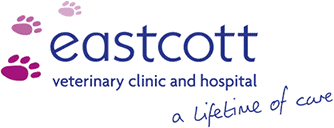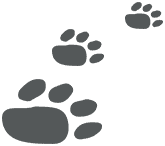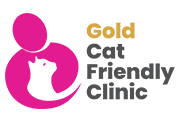What is socialisation in dogs
The term socialisation in dogs very simply means the learning process a puppy must go through in order to learn key life skills. This ensure that a puppy is happy and confident in all environments and has the skills to be able to communicate effectively within its social group.
In this article we explore the Over Socialisation of Dogs written by Emma Johnston from Speak Dog Training and Behaviour Swindon. It's important to understand what vaccinations and flea treatment your puppies need before beginning to socialise. If you're unsure, get in touch and speak to one of our experts.
Stop Socialising the Dog! - by Emma Johnston
So let’s start with what you think socialised looks like as this can be how issues start, not with the puppy but with the owner’s perception of what socialised means.
You may be surprised to know that socialised is not a puppy or dog that is uncontrollably excited to see people and dogs.....shocker right?
The term socialisation very simply means the learning process a puppy must go through in order to learn key life skills, this ensures that a puppy is happy and confident in all environments and that it has the skills to be able to communicate effectively within its social group.
Puppies are not born with all the social skills that are required of them to live with their canine and human families, these they must learn so getting this right in the early stages in crucial.
However socialisation doesn’t stop at puppies, these good well mannered experiences must continue through adolescents setting Fido up to be a well mannered and adjusted adult.
The skill that is most often missed out of a dog’s socialisation process is teaching impulse control in social situations - this is one of the most important skills you can teach your dog
There are 3 main socialisation groups puppies and dogs will fall into but only one will give you a well balanced easy going pooch.
What is a socialised dog?
A socialised dog is a dog that can read other dog’s body language and can respond accordingly is a pleasure to own.You see a dog on lead the owner shouts over “He is a nervous dog”; a well socialised dog has the skills to offer calming signals and gives the nervous dog space, it doesn’t rush over to bundle the dog wanting to play causing the scared dog to bite through utter fear!
What is a well socialised dog?
A well socialised dog is everything you no doubt pictured when you got a puppy or dog.
A game of chase is requested by another dog and your dog can oblige without playing to rough, or bundling in with wild exuberance causing possible injury.
He is not the constant chaser always pinning other dogs to the floor to then writhe all over them in wild excitement, nope not your dog! Your dog is safe and calm around small children, they understand they are not chase and play objects but little people to be calm and well mannered with when around. Your well socialised dog can play fairly, it will chase but also take to turns to be chased. Play between two well socialised dogs is equal and a pleasure to watch.
A well socialised dog has impulse control within its skill set. This means that the dog never becomes so over aroused by things in its environment that it loses the ability to communicate effectively. This is achieved by correct socialisation and applying reward based training methods and teaching impulse control.
People often think this is an unachievable goal when that bundle of crazy comes home but it is achievable. You don’t need to be a dog genius, but you do need commitment and a good understanding on how to guide your puppy or dog on that right path
What is an over socialised dog?
These dogs don’t pay attention to other dog’s signals, everything is fair game. They have one thing on their mind, they go rushing over to bundle and play with all dog’s or wanting attention from people and that’s OK? I mean he just loves everyone and that’s what you want from a dog right? Wrong, this type of dog is often the cause of more arguments and bite incidents than an aggressive dog.
An over socialised dog has never learnt impulse control, it believes that all the fun and excitement comes from other people and dogs.The most common phrase used when these dogs are rushing over despite the calls of the owner is “it’s OK he is friendly, he just loves everyone”. Ok, but what if the other dog is on the lead due to being fearful and it isn’t OK with that?
Would you be OK with a stranger running at you, waving arms and then grabbing and hugging and jumping and screaming with excitement in your face? - no? So why should our dogs?
An over socialised dog will bounce, pull and lunge on the lead to get to the object of its desires, despite the other dog giving very clear signals it does not want to participate. These types of situation can lead to a heated exchange of words between owners, fearful Fido growling, barking on the lead and making its feelings clear as it becomes more stressed and fearful, the owner struggles to not let the fear spill into a bite situation and over the top Fido ignores these threats and continues to try and bundle the dog, we can see how bites happen and how people get so frustrated.
What is an under socialised dog?
It is not normal for young puppies to be timid or scared, at a young age puppies should approach things with intrigue and curiosity. An under socialised puppy can be down to genetics, or a lack of suitable experiences starting as early as 3 weeks. This is why if buying a puppy from a breeder it is vital you get a good ethical, reputable breeder dedicated to providing positive experiences with sounds, people and objects and enrichment within its environment.
Shy puppies have different sensitivities, and some are more difficult to socialise so working on changing this as soon as possible is vital.The biggest mistake people make with shy puppies is forcing them to continually face their fears in the hope they will learn it is OK and will get over the fears.Shy puppies should not be put in situations where they become overwhelmed. This only leaves the puppy with a negative feeling and it feels relieved the threat has gone away and further reinforces the fear.Allow a shy puppy the freedom and time to make friends at their own speed. Don’t allow your puppy to be bundled by other puppies or dogs or stroked and handled if people are the cause of the worry. If someone approaches your puppy and your puppy backs off, ask the stranger to stop, drop a treat on the floor and give distance. Giving your dog experiences that they can cope with and leave with the feeling they haven’t been pushed over threshold will get you the best results quickest, continually pushing a nervous dog over threshold often leads to fear biting this is not how you want your puppy to respond when scared.
Getting dog socialisation right
Veterinary practices that offer puppy parties are a great place to go BUT it is vital that it its is not just a free-for-all. The right puppies should be matched when playing, this means all puppies will leave having enjoyed the experience of playing with other puppies, inappropriate play will be interrupted and no puppy will leave feeling the experience was over whelming and too much to handle.
A good reward based trainer will be the most effective and valuable tool you have in your socialisation kit. Puppy classes where it is solely puppies (20 weeks and under) are vital. Puppies will learn impulse control, life skills and will enjoy equal and well matched puppy play where puppies are similar in temperament and play styles so they leave every session feeling happy and confident but under control.
What to do if you have a poorly or over socialised dog?
If you have a dog that is over socialised or under socialised hope is not lost, contact your reward based trainer
and behaviourist who will show you how to work on improving and modifying your dogs behaviour using force free methods.
by Emma Johnston from Speak Dog Training and Behaviour.
for more blogs from Emma, please visit the Speak Dog website





